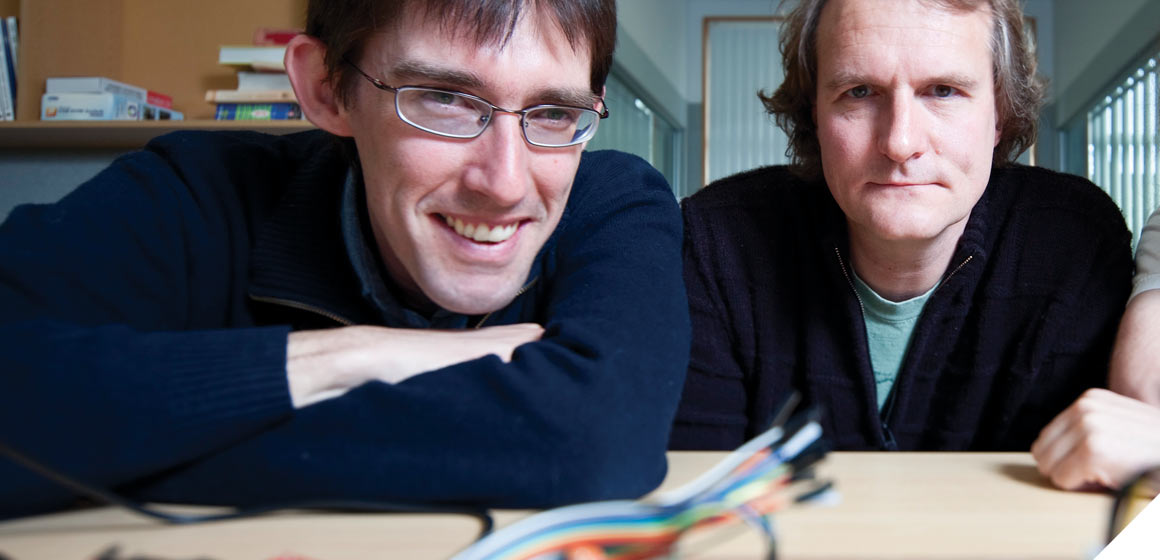 Monday 3 February 2014 1:29pm
Monday 3 February 2014 1:29pmA solution to one person's computer problem is likely to have much wider benefits for computer users. Associate Professor Andrew Trotman (Computer Science) devised the idea of building a portable, high-performance, personal supercomputer to solve his problem of trying to manage large amounts of data on a limited budget.
He is creating a working prototype in collaboration with Dr David Eyers (Computer Science) – who suggested adding solar power – hardware engineer Paul Campbell, Andrew Wallace (Applied Sciences) and applied sciences student Rebecca Elmslie.
Trotman says the project has generated considerable interest.
"Most has come from academics who are trying to tackle similar problems. In particular, the low cost of the device is very attractive."
He says potential users include anyone who crunches a large amount of data, from the film and audio industries, to libraries, to agriculture. “In the dairying industry, for example, you might want to process real-time data about which cows are producing how much milk, using a stand-alone computer powered from a solar panel on the cowshed roof."
He also points to the potential use as a teaching tool. "I am hoping to get students involved in projects on this device: energy efficiency, operating systems, programming language, big data processing, artificial intelligence. We can use this to train people to think about how things are going to be in the future."
"I am hoping to get students involved in projects on this device … We can use this to train people to think about how things are going to be in the future."
Meanwhile, Eyers is using the super-computer as a springboard for research on what he calls a "nomadic computer" – one that will be put to work as and when resources are available and required.
He says the first task is to prove the concept.
"You want to effectively create a smooth separation between the software that gets your work done and the hardware that you are running on. Today's cloud computing technology achieves part of this goal, but still places many barriers to achieving computing jobs than can wander wherever they need to go to best get the work done, with the system making its own decisions about optimising this migration."
Eyers explains that this would be particularly useful in enabling computing work to jump between computers running on green energy such as solar and wind power and those operating on grid power, depending on the availability of the local green energy.
He concedes that there is a psychological barrier to overcome. "New technology will need to be developed to ensure security. If the Dunedin City Council is running its services on software that is wandering its way from computer to computer through the city, that's a very different world from thinking about a particular computer server running the software."
Funding
- Otago Energy Research Centre
- University of Otago Research Grant